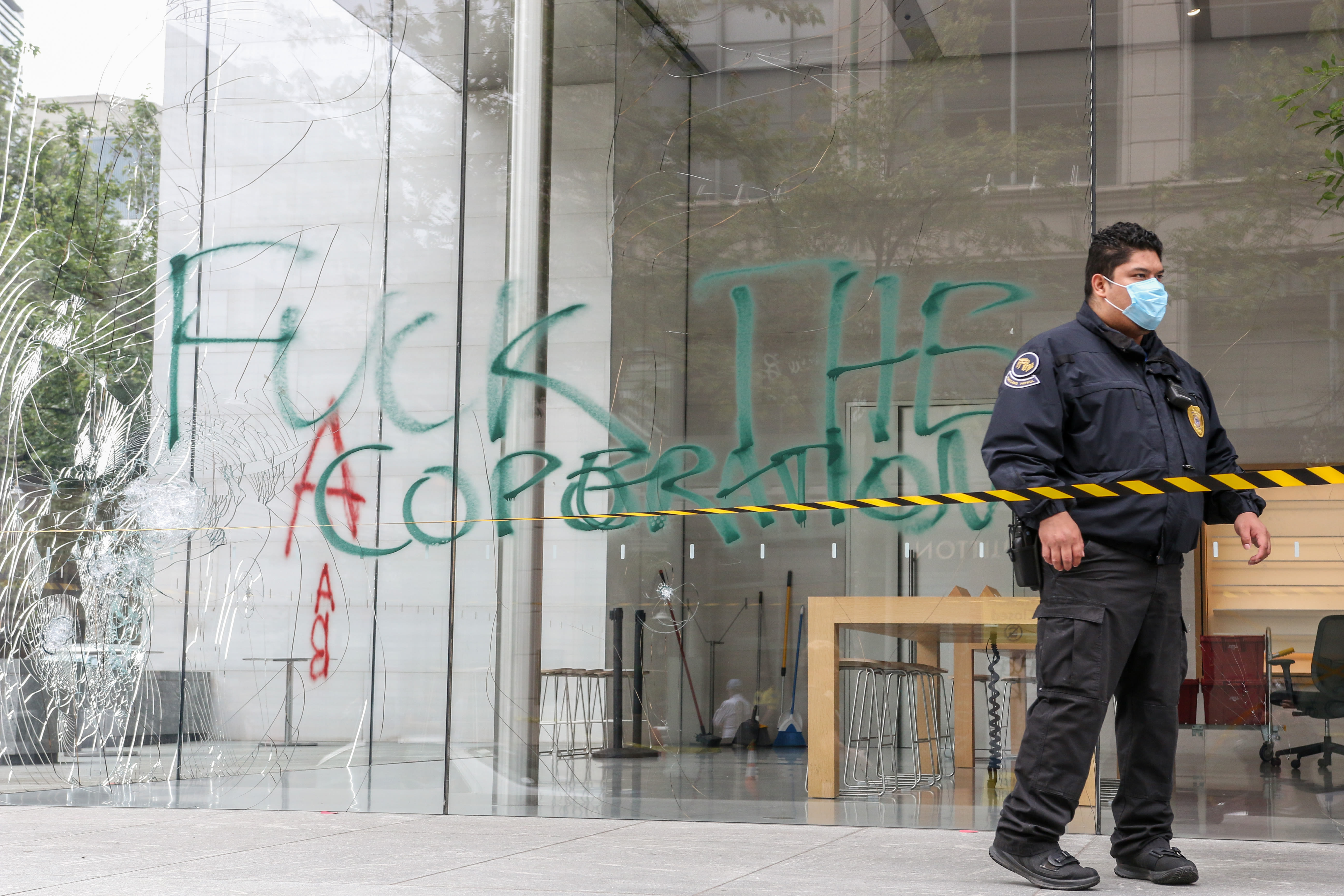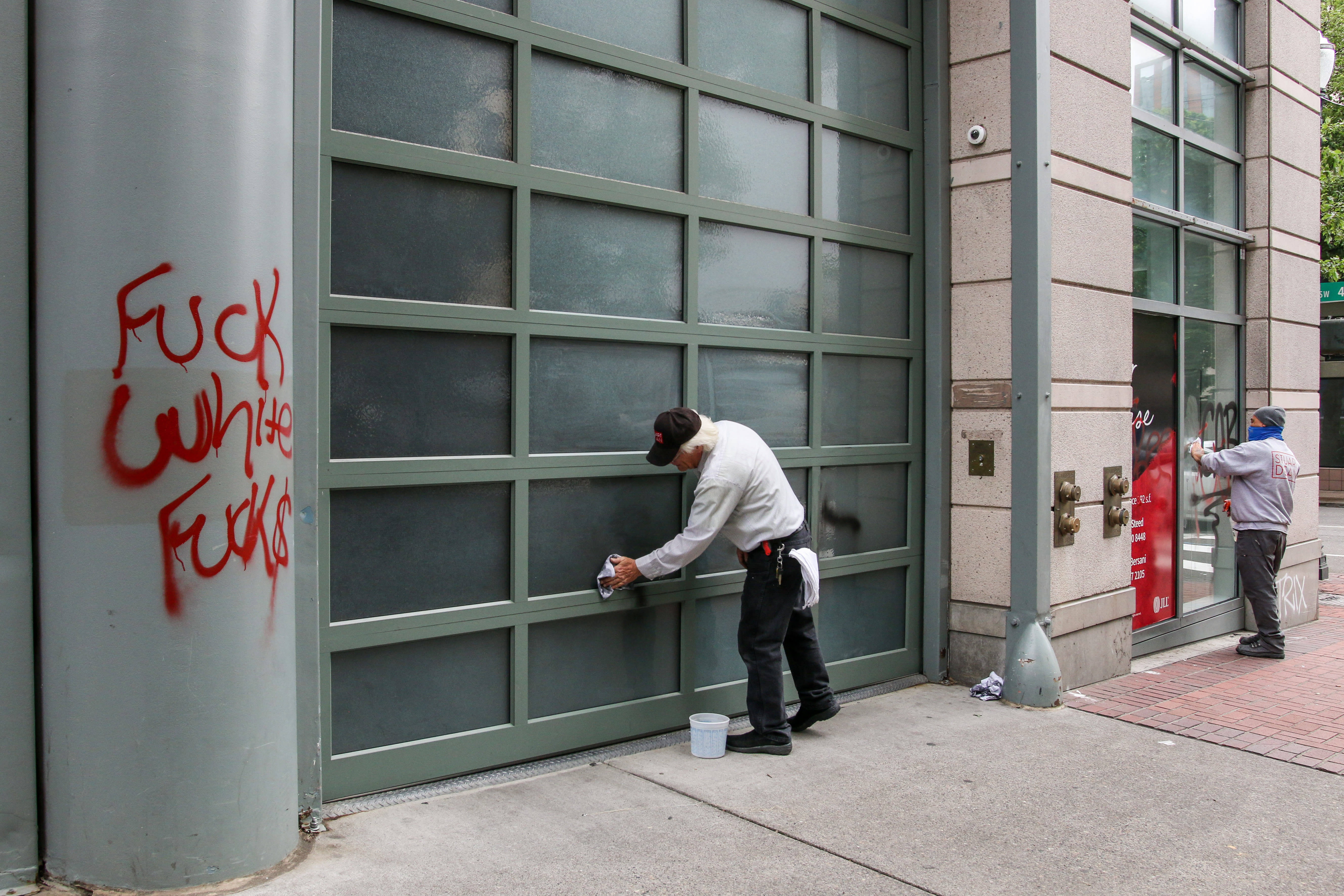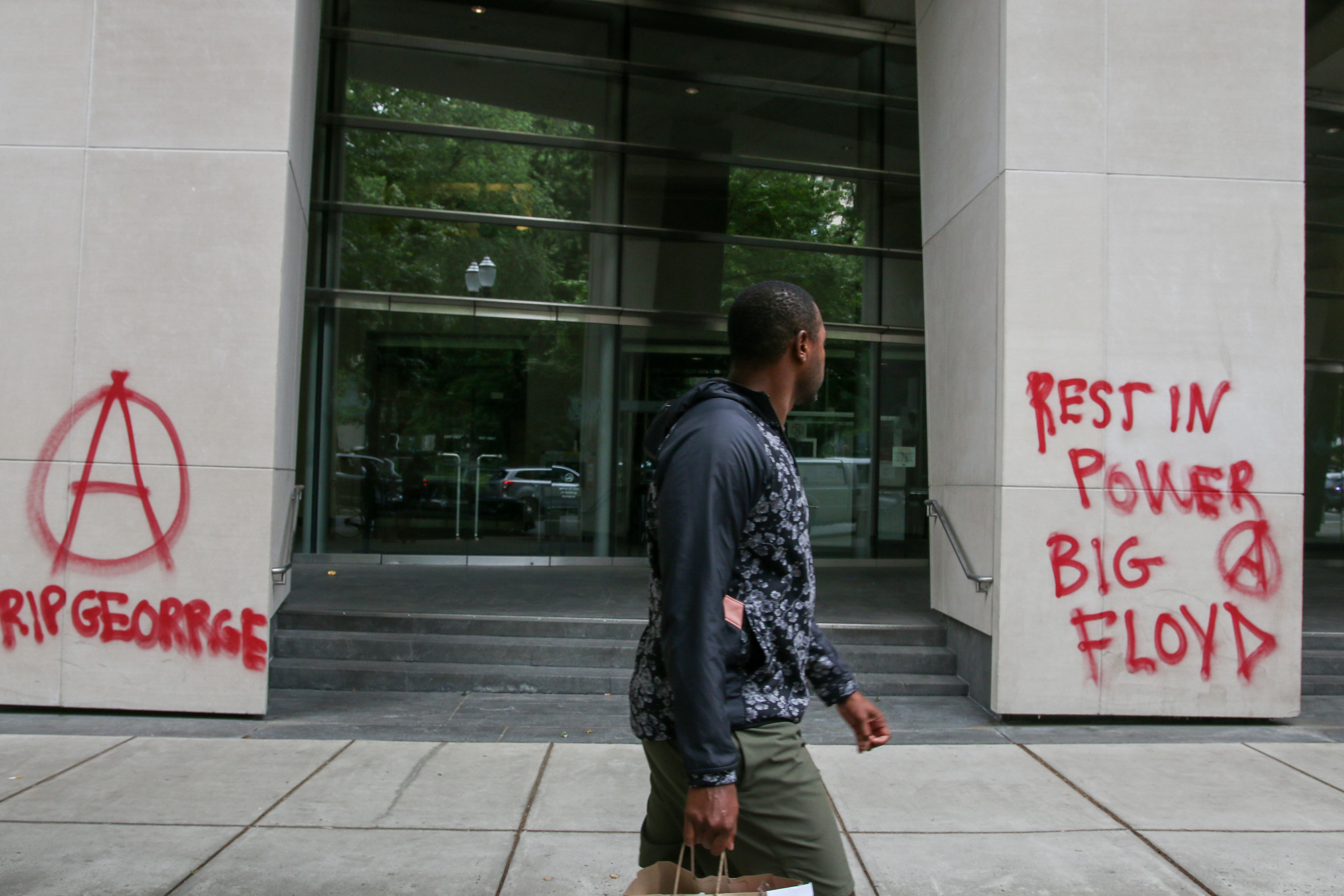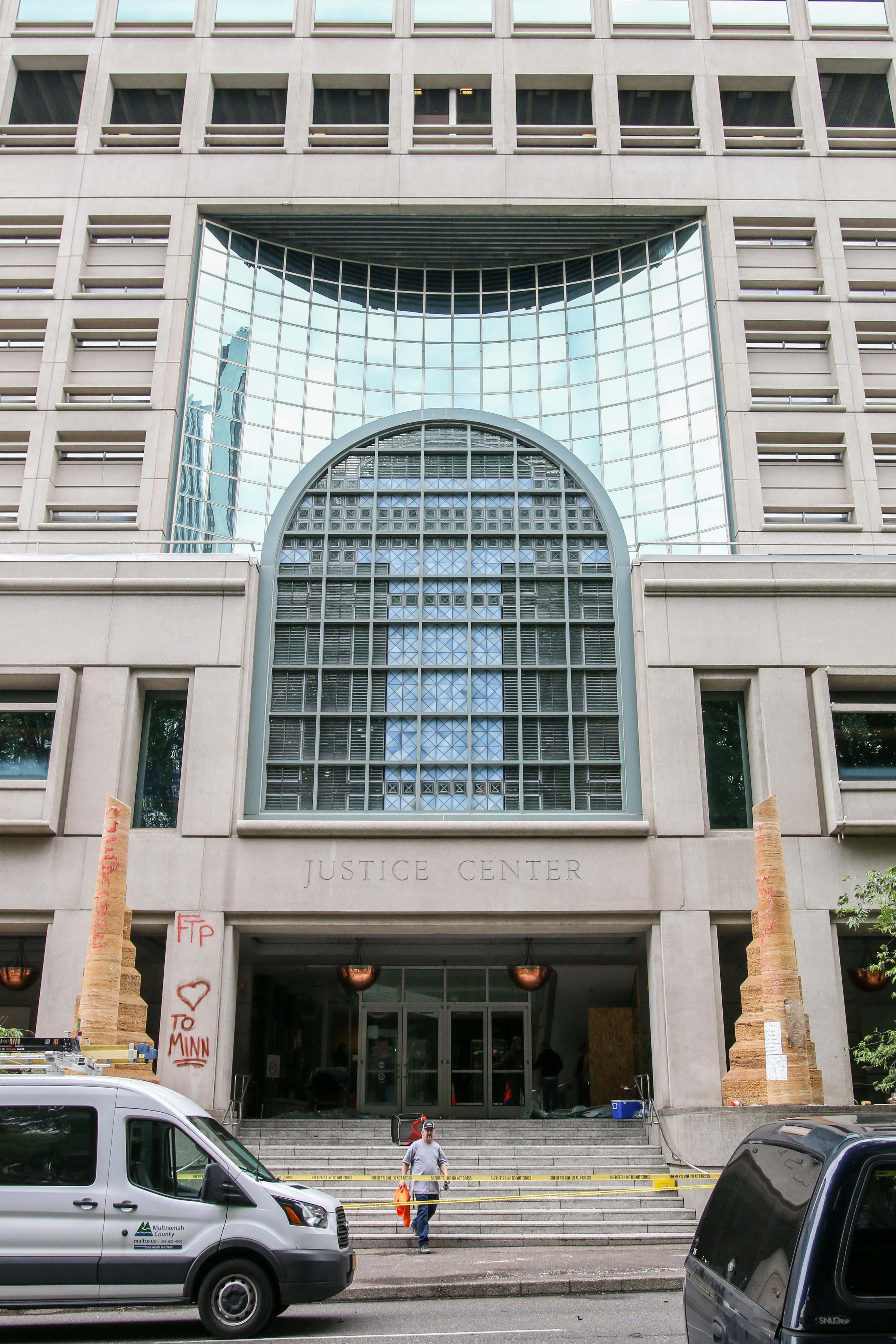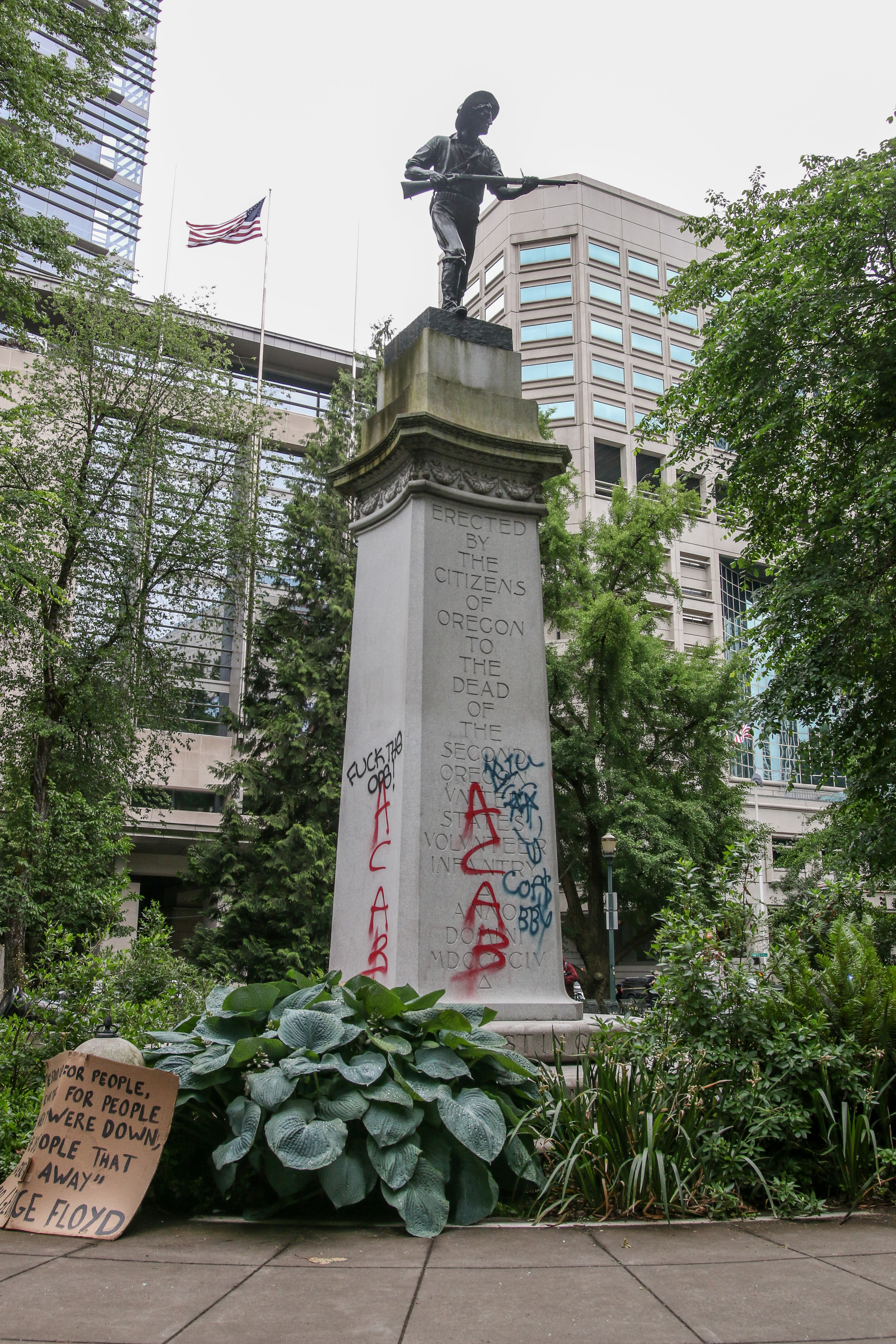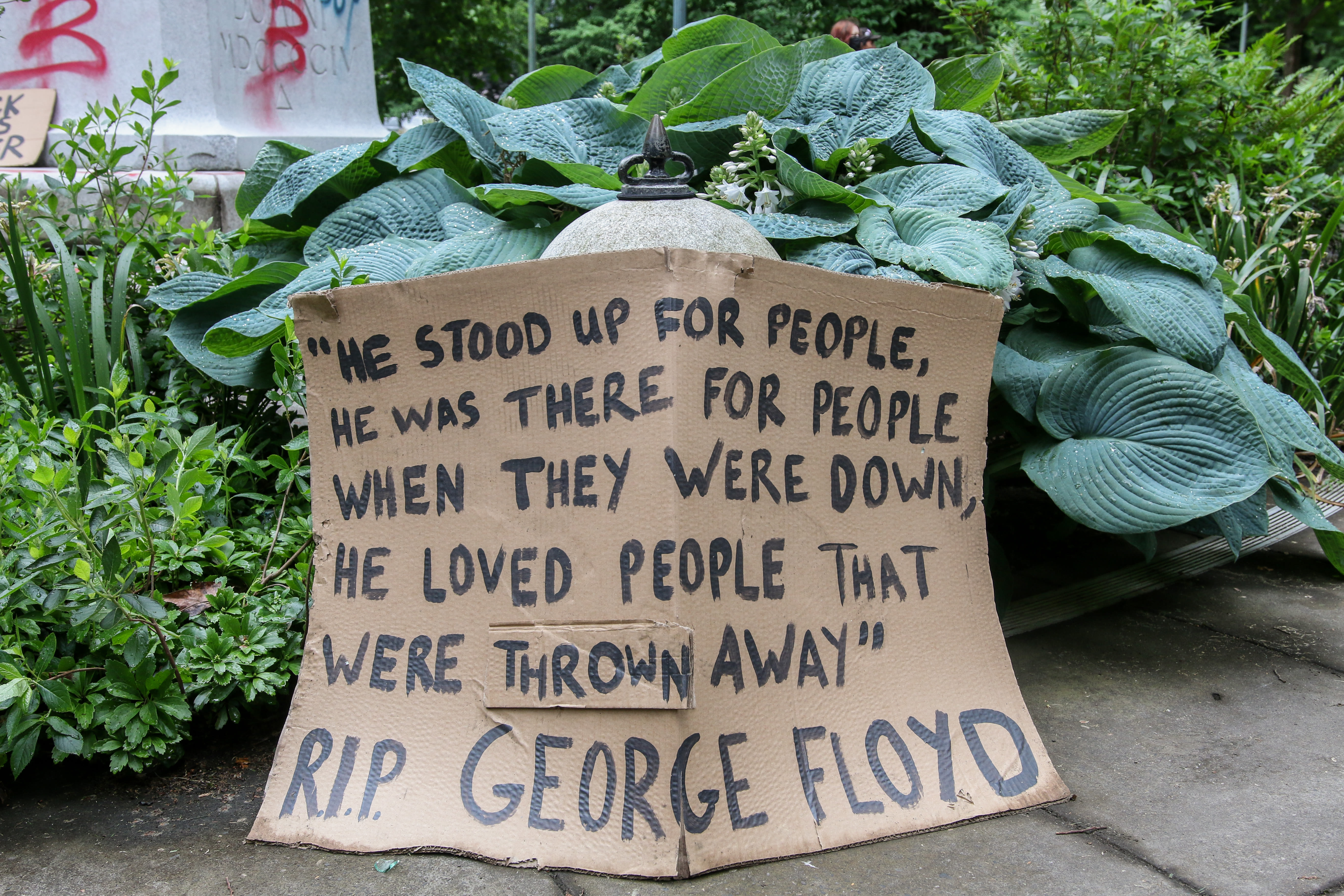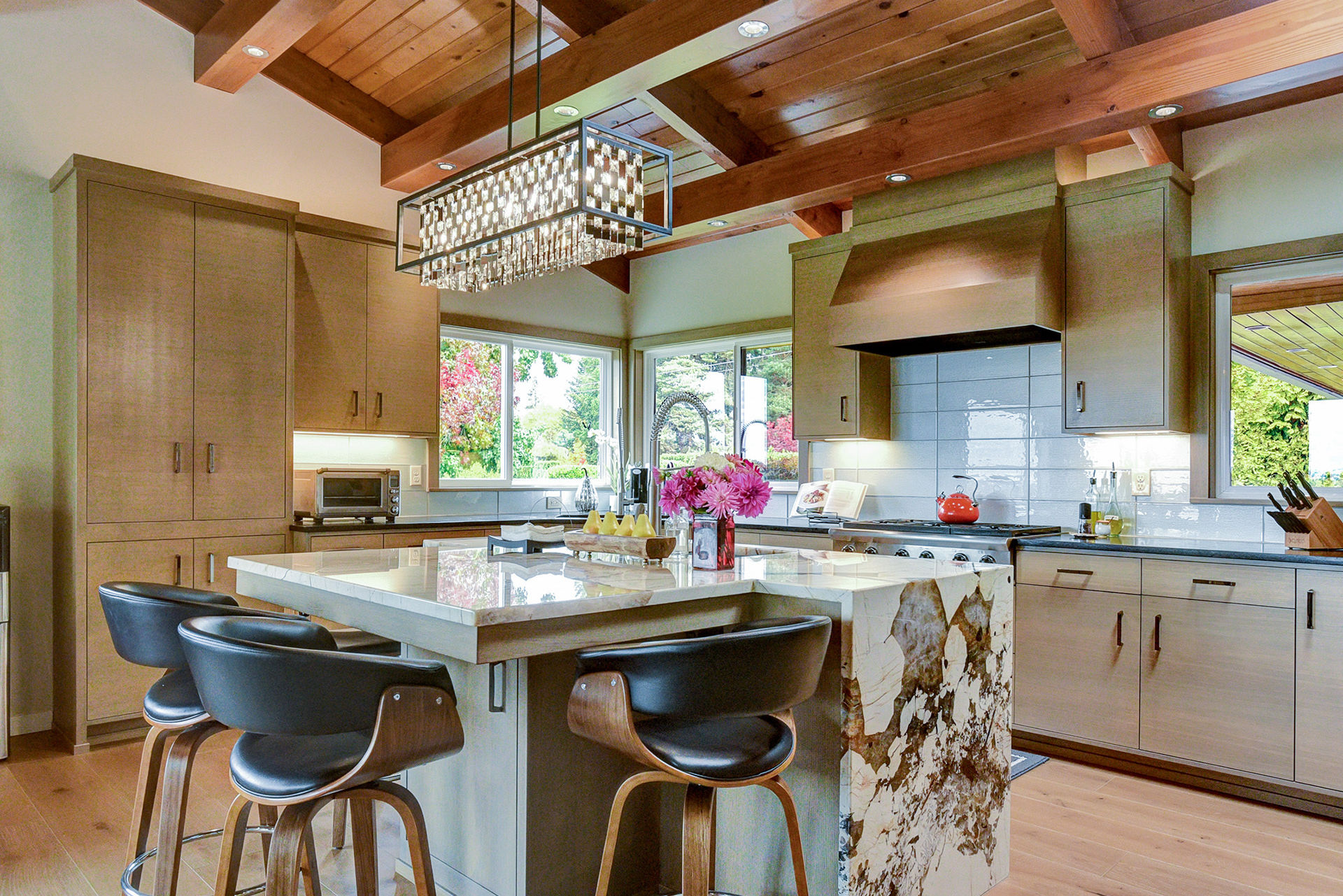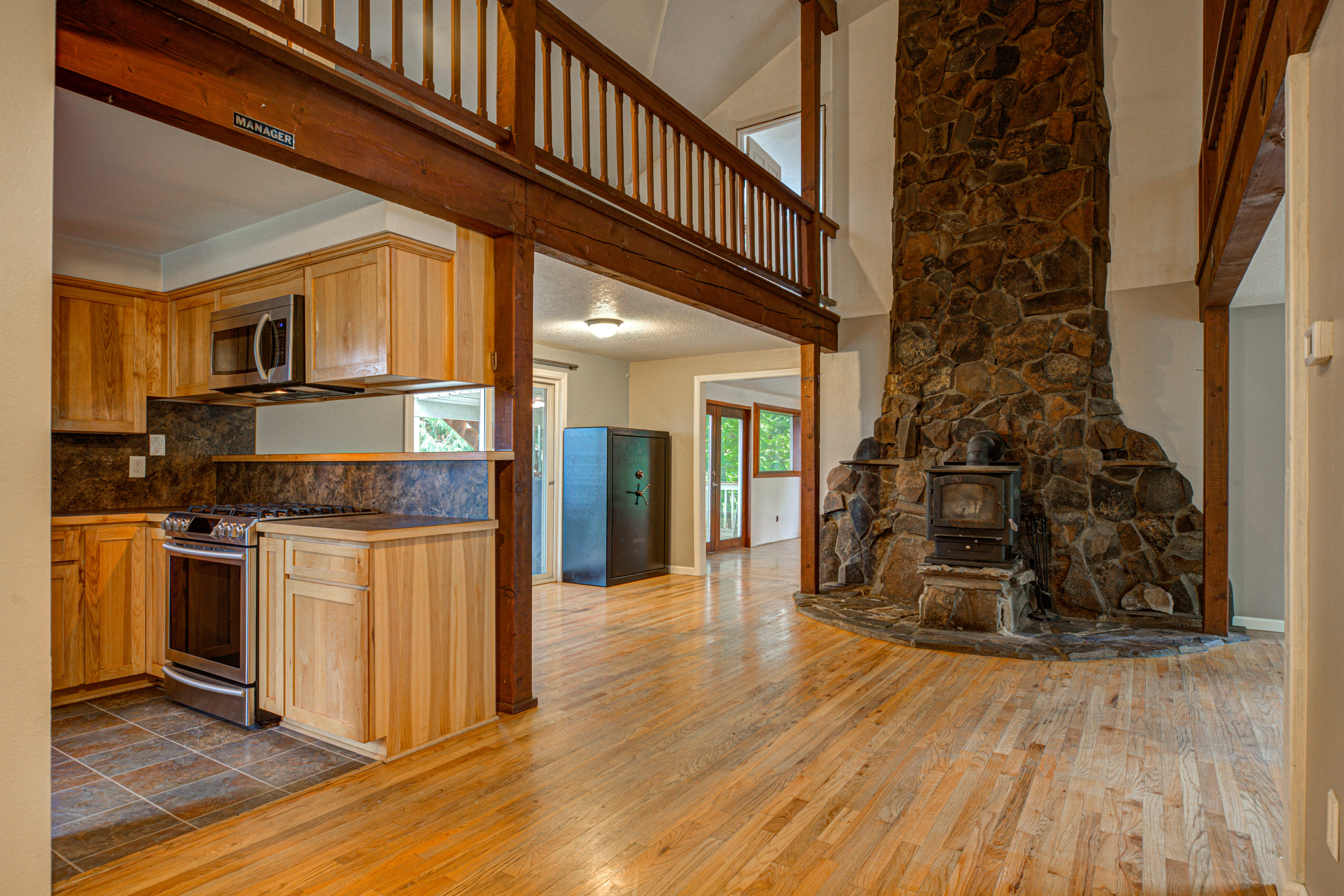The Aftermath of Friday Night's Protests
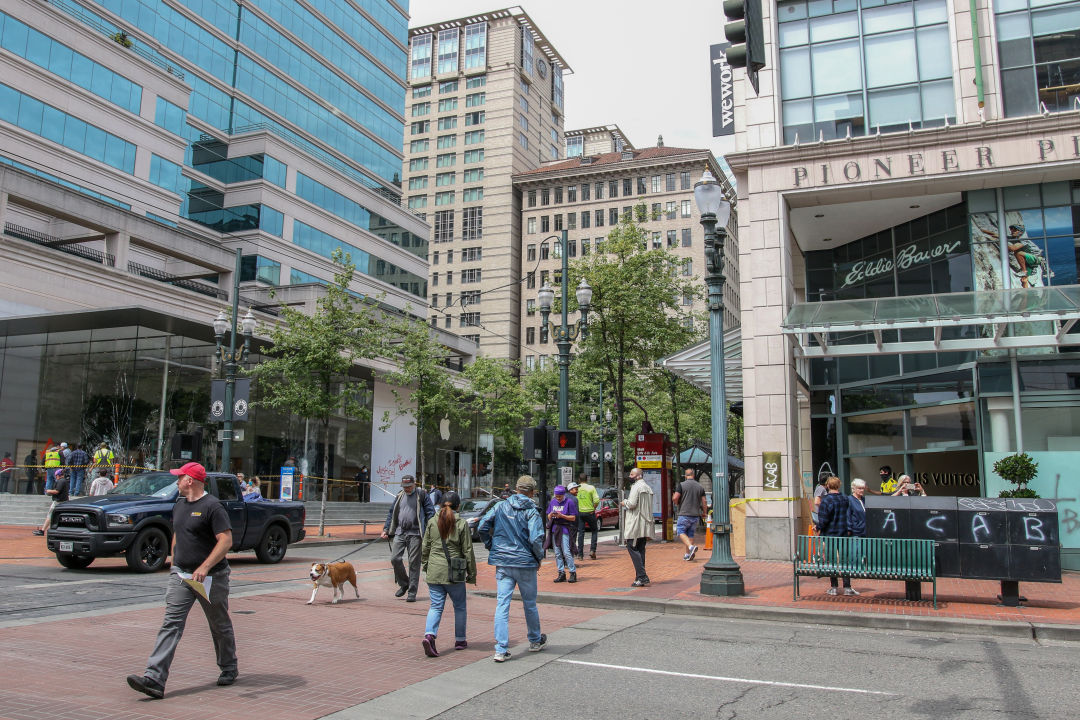
Saturday morning, May 30, just hours after a demonstration protesting the killing of George Floyd occurred in downtown Portland. The scene depicts a city, a nation, in grieving.
Image: Gabriel Granillo
It's a fairly typical sight on Saturday morning, before the ever-looming pandemic, to see faces behind cell phones and selfie sticks, documenting the cityscape. But Saturday, May 30, the morning after the demonstrations in memory of George Floyd erupted in violence and arrests, was anything but typical: clean-up crews sweeping shattered glass off of cold concrete, men in yellow vests and red bandanas power washing graffiti from marble exteriors, sirens swirling and echoing through the streets.
Amid the coronavirus pandemic, which has forced people the world over into self-isolation, hundreds of Portlanders gathered Friday, May 29, to honor the life of Floyd, a black man killed by a white Minnesota police officer earlier this week. Similar vigils took place across the nation, with protestors standing in solidarity against racial injustice, police brutality, and the all-too-common killings of unarmed black men.
In Portland, the PNW Youth Liberation Front also hosted a vigil at Peninsula Park, drawing large crowds of demonstrators to North Portland, after which protestors marched down Martin Luther King Boulevard toward the Multnomah County Justice Center downtown. Once there, small groups broke the windows of the Justice Center and entered the building where, soon after, a fire broke out. When Portland police arrived at the scene, they deployed tear gas and ordered the public to disperse.
The scene was reminiscent of the much larger protests in Minnesota, which have been playing out since Floyd's killing. Fueled by the injustices of systems that are supposed to protect, not harm, people, the protests have bitterly divided the nation. The president went so far as to mine white supremacist history and tweet: "...when the looting starts, the shooting starts." Twitter flagged his tweet for glorifying violence.
As the rain trickles down Saturday afternoon, it will wash away the ash and debris. But the racist legacy of this country, and horrifying images of Floyd, arms handcuffed behind his back, pinned down between the asphalt and the blunt force of a knee, as he gasps his final words, will be harder to wash away.


